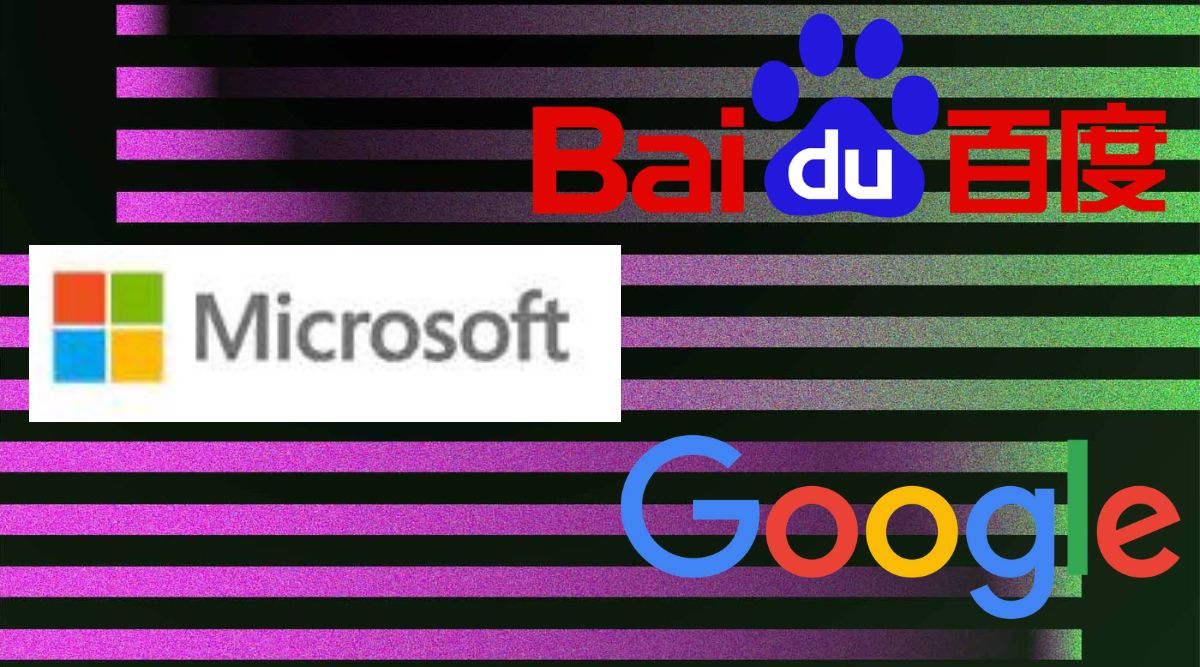ChatGPT impact: Google, Microsoft, Baidu race to launch next-gen search engines
Seeing the enormous potential of the technology, the industry is either rushing to adopt ChatGPT in applications or trying to come up with alternatives.
 Launched in November 2022, ChatGPT developed by OpenAI, is an open-source platform that can write papers, articles and essays with proficiency, after a simple command (Express photo)
Launched in November 2022, ChatGPT developed by OpenAI, is an open-source platform that can write papers, articles and essays with proficiency, after a simple command (Express photo) When it was introduced, ChatGPT’s ability to break down complex problems and explain everything in a human-like manner led many to proclaim that Google’s days as the numero uno search engine are numbered. While that’s debatable, ChatGPT’s impact on the industry is undeniable. Seeing the boundless potential of the technology, Microsoft is not only bringing out its investment guns but is also planning on integrating ChatGPT into its products. But, these are only a couple of examples – the impact of the AI chatbot is more reaching, and today we check out how the wider industry is responding to its advent.
Google ups the ante against ChatGPT
Where Google serves up a list of internet links in response to your queries, ChatGPT goes the extra mile in providing information in clear, simple sentences that are much easier to understand. Add to that the ability to generate content from scratch. While there’s still plenty of room for improvement, the technology and its potential has got Google on the edge. The company reportedly declared a “code red” fearing that the AI chatbot could disrupt its search business.
A report from The New York Times states that Google has called in help from founders Larry Page and Sergey Brin to help fight the AI threat. The duo has reportedly approved plans and pitched ideas to add chatbot features to Google. They also offered advice to company leaders, who are altering existing plans and increasing investment in the development of AI. The company plans to launch over 20 new AI products and even showcase a version of Google with chatbot abilities.
However, even as the idea to include chatbot in search is new, Google will not be the first to do so when it does. Search engines like NeevaAI and You.com have already beaten Google at the game, although both are currently offering that service in beta. Meanwhile, Google is the current dominant search engine with billions of users and will likely only adopt the technology once it’s more confident in its accuracy.
This is apparent from the fact that Google already has been working on language model technology for years as part of its LaMDA (Language Model for Dialogue Applications) project, albeit in a less flashy manner.
Microsoft pours more money into AI and ChatGPT
Microsoft has a less competitive relationship with ChatGPT. The Redmond-based company has made significant investments over the past years in OpenAI, ChatGPT’s creator – $1 billion in 2019 and then another $2 billion in the years since. The $3 billion has been paid for the massive computing power that OpenAI needed to build the chatbot. More recently, the company announced that it’s making another $10 billion investment, this time over several years. The announcement came less than a week after the company said it was laying off 10,000 workers amid poor economic conditions.
Armed with the ChatGPT advantage, Microsoft is now finally in a position to challenge big tech companies like Google, Amazon, and Apple. The company is preparing to add the chatbot to its Bing search engine in an attempt to pull users from Google. Bing’s market share currently is only a tiny fraction of what Google enjoys, and Microsoft seems to be betting big on the chatbot integration. The feature may be rolled in the next several months, even as there’s still a long way to go before ChatGPT is deemed reliable enough. The initial release may, therefore, be limited to a narrow group of users.
Microsoft also recently said that it will add ChatGPT to its cloud-based Azure service “soon.”
Baidu aims to launch AI chatbot for its search engine in March
China’s search engine behemoth, Baidu, is also aiming to launch its AI chatbot, joining Microsoft and Google in what could be a race to set the stage for the next generation of search engines. According to a Bloomberg report from Sunday, Baidu is working on a ChatGPT-style application native to the search engine. This will roll out as early as March.
With the tool, Baidu users will get to human-like responses to their queries, much like those that ChatGPT yields. Bloomberg’s source says that the tool will be built with ERNIE, Baidu’s own Large Language Model. Little is known about ERNIE right now because its capabilities have been kept hidden from the public.







